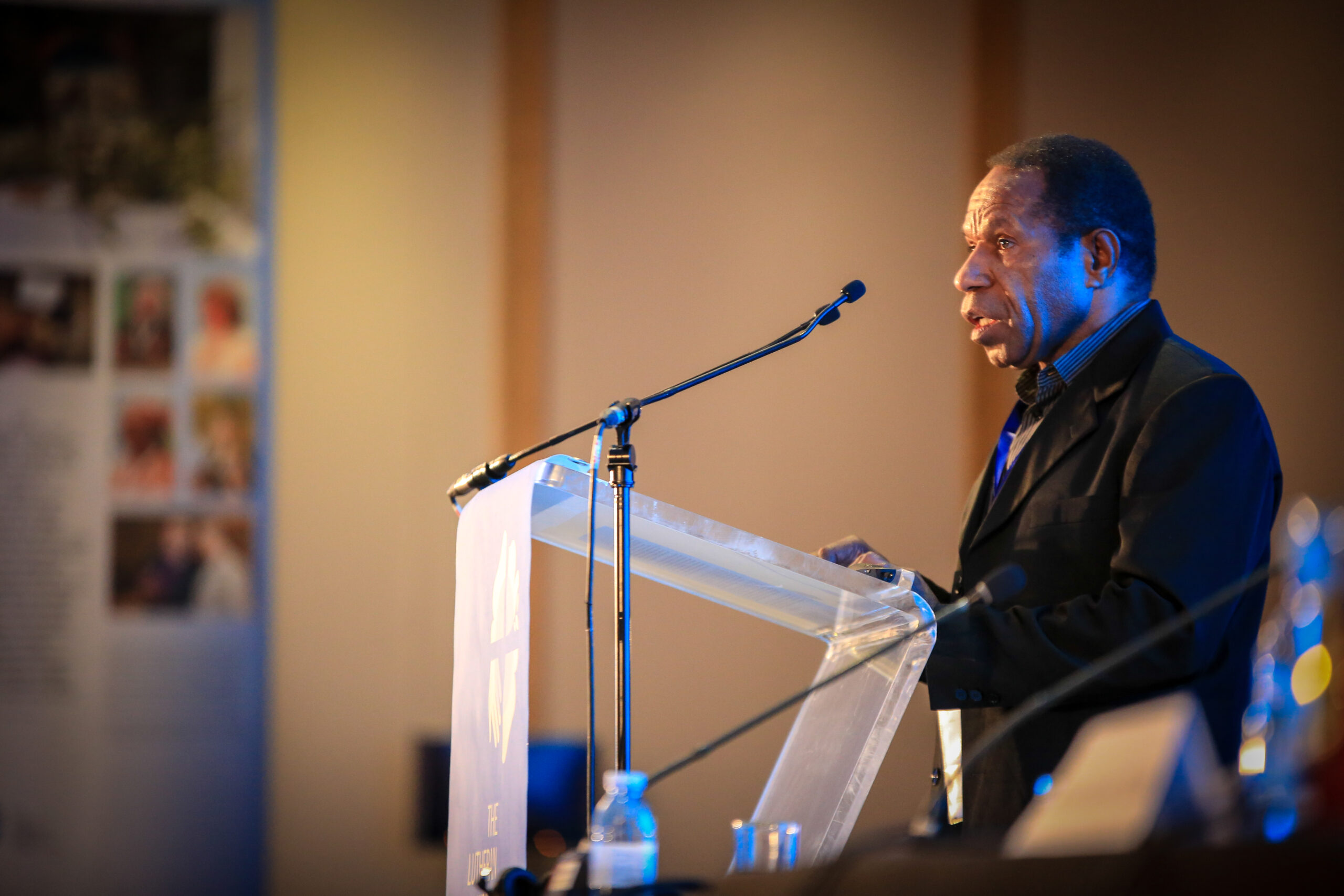
On 2 November 2025, at the Lae International Hotel, the Evangelical Lutheran Church of Papua New Guinea (ELCPNG) hosted the Bishop’s Reformation Dinner to commemorate one of the most significant events in Christian history, the 508th anniversary of the Reformation. The gathering brought together ELCPNG leaders, pastors, laypeople, youths, elders, ecumenical partners, and members serving in both the public and private sectors. Centred on the theme “The Church Must Continue to Engage in the Public Space: Without Moral Voice, Society Falls into Chaos,” the event highlighted the continuing importance of the Reformation. In his keynote address, Head Bishop Jack Urame reminded the Church and the nation that the Reformation was not merely a moment in the past, but remains a living call to truth, accountability, freedom, and the protection of creation.
Bishop Urame invited the audience to consider how the original Reformation confronted systems of power, exploitation, deceit and social injustice. He made it clear that while the 16th-century context was different, many of the same issues, weak leadership, corruption, injustice, environmental destruction, the suppression of dignity, are very much part of contemporary Papua New Guinea. The Church, he argued, must not withdraw from the public square but must lift its prophetic voice.
In that light, Bishop Urame addressed one of the most urgent issues facing Morobe Province and PNG today: the proposed Wafi-Golpu mine, and specifically the plan to dispose of mining waste via Deep Sea Tailings Placement (DSTP). The Wafi-Golpu project, located approximately 65 km south-west of Lae, is a major copper and gold deposit operated by a joint venture between Newmont Corporation (having acquired Newcrest Mining) and Harmony Gold Mining Company. If developed, it would be among the largest mining projects in PNG. The campaign coalition estimates around 360 million tonnes of tailings and chemicals would be dumped into the Huon Gulf over an anticipated mine life of 28 years.
The “No to Wafi-Golpu DSTP” campaign brings together a broad coalition of churches, civil society organisations and community partners who share concerns about the risks posed by Deep Sea Tailings Placement. Their collective focus is on the wellbeing of coastal communities and the protection of the marine environment, food sources, cultural identity and the livelihoods of future generations. At the Dinner, Bishop Urame reaffirmed the Church’s position: “No to the Deep Sea Tailings Placement (DSTP) proposal under the Wafi/Golpu project.” He emphasised the Church’s responsibility to safeguard God’s creation and human life and stressed that development must not place communities at risk or compromise their future.
He also pointed out that while the national government is still pushing for the mine to commence, the Church remains firmly aligned with the local communities who voice legitimate fears about environmental and social impacts. The coalition documents highlight that the pipeline for the tailings disposal would be some 103 km long, passing through seismically active zones and delivering mining waste into the Gulf’s deep waters. One of the human-rights complaints filed by the coalition lists the Church as a notifier in an OECD complaint, noting the Church’s embedded presence in nearly every village along the Huon Gulf coastline.
In his broader reflections, Bishop Urame stressed that the Reformation message of 508 years ago remains alive—calling the Church to be salt and light, to stand for accountability, freedom, and truth. He reminded the gathering that when the moral voice of the Church is silenced or absent, society moves toward disorder and chaos. In the context of PNG’s mining sector, this moral voice is needed now more than ever: to demand good governance, to protect human dignity and creation, to ensure that “Creation, Human Beings, and Salvation Are Not for Sale.”
As the evening concluded, the Church’s message was clear: while development may bring economic promises, it must not come at the cost of justice, the environment or community wellbeing. The Church commits to remain actively engaged in the public space, championing the rights of the vulnerable, safeguarding creation, and standing with the people of Morobe Province and Papua New Guinea as a moral presence in the national conversation.
**
**
Note: Read more about the coalition campaign against DSTP : https://nowafigolpudstp.org


